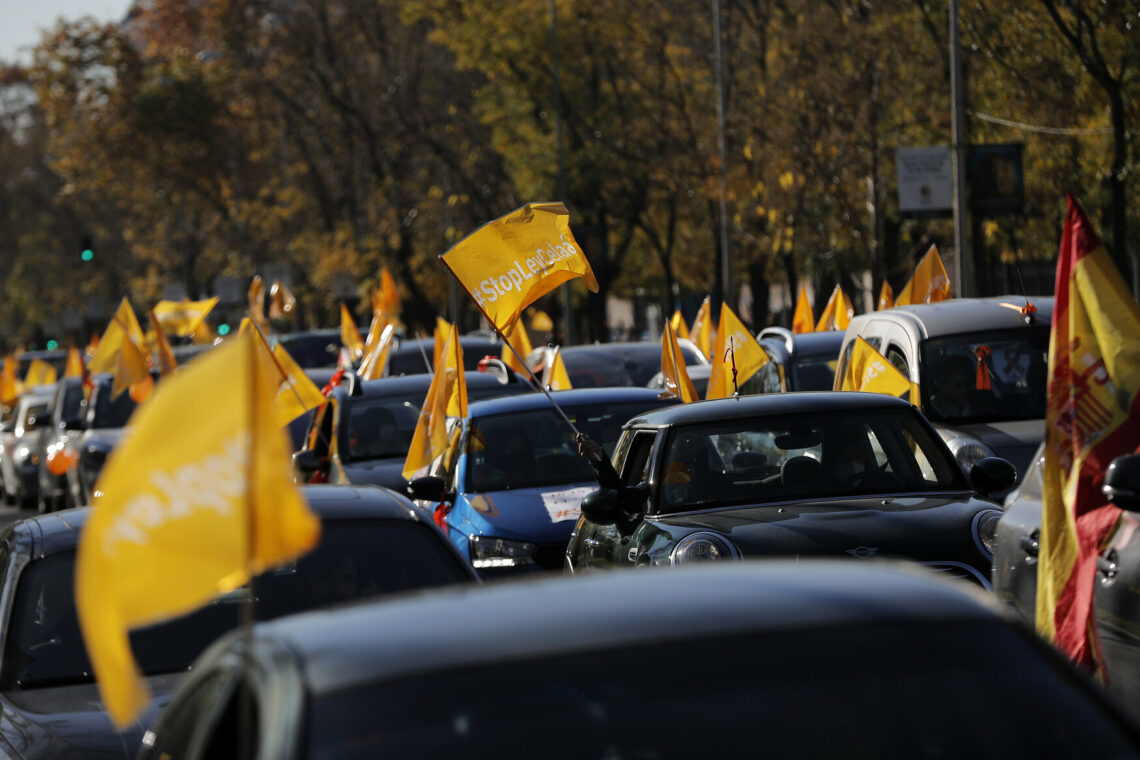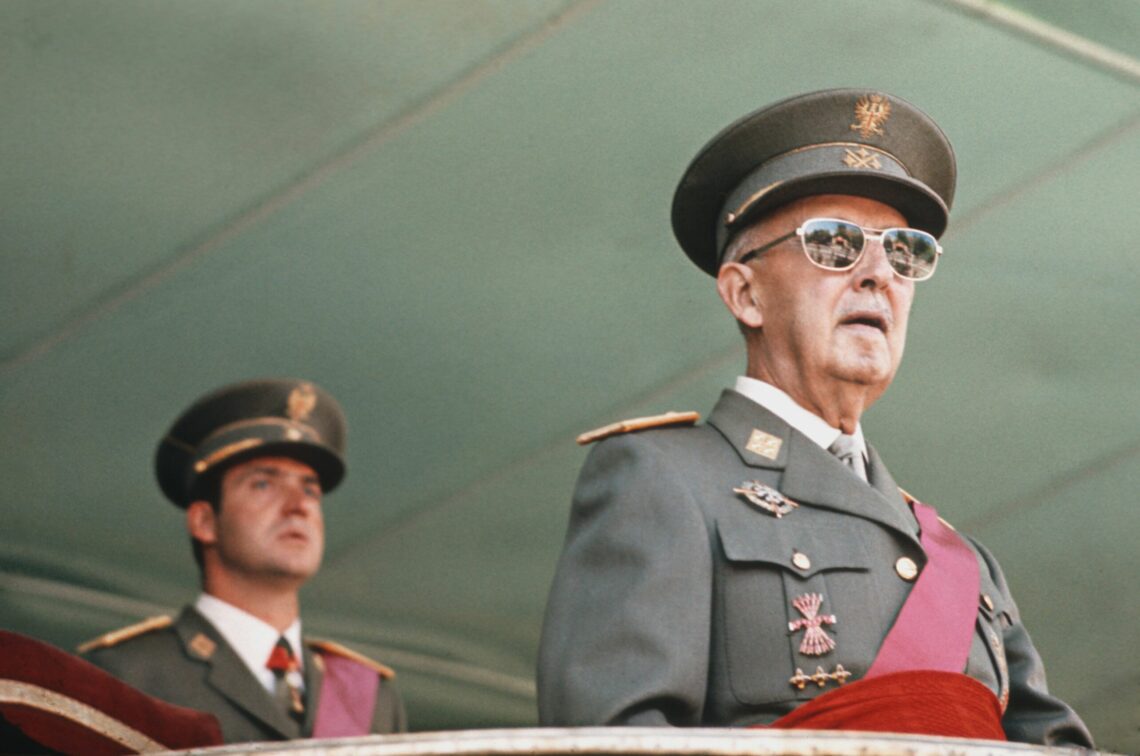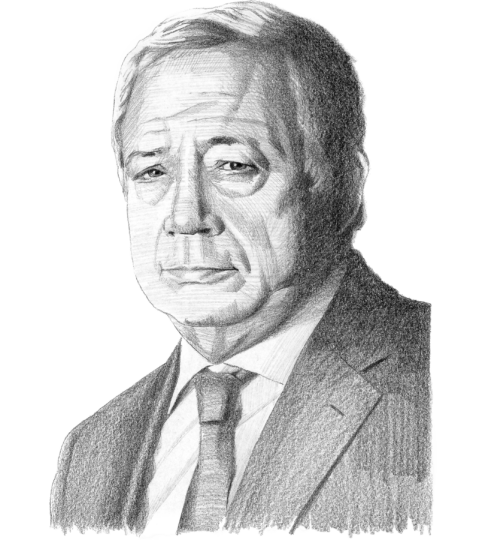Spain, a left-wing illiberal democracy
With the rise of a new Spanish left, the postwar and post-transition consensus was disrupted and old wounds have reopened. The ruling leftist coalition in Spain needs to compromise with extremist parties, which is causing politics to radicalize on both ends of the spectrum.

In a nutshell
- Radical leftism has shattered Spain’s postwar consensus
- Separatism will accelerate radicalization on both sides
- The leftist coalition is lenient toward extremist factions
Media often criticize Poland and Hungary for acting as “illiberal” right-wing democracies, hurting the classic division of powers, meddling with the judiciary and trying to control opposition voices. But there are rulers on the other side of the political spectrum that have been taking steps toward the same “illiberal” path, albeit mostly out of the spotlight.
This is the case of Spain’s ruling coalition, founded by the Spanish Socialist Workers’ Party (PSOE) and the Unidas Podemos, a radical left-wing party bent on enforcing an agenda of political correctness.
Postwar assent
The era between the end of the Franco regime in 1975 and the approval of a new Spanish constitution in 1978 is considered a great success among transitions from authoritarianism to democracy.
The restoration of the monarchy, under King Juan Carlos of Borbon, was a key element in this process. Francoist Spain was neither republic nor monarchy, but a kind of hybrid system in which authoritarian institutions gave political form to the Generalissimo’s strong personal rule, as the commander of the victorious “anti-communist crusade” in the 1936-1939 Civil War.
The monarchy was perceived as a fundamental pillar of this new constitutional democracy.
The transition was difficult; it faced opposition on both sides of the political spectrum. On the right, many Franco loyalists still had power and influence at state level. On the left, radical extremist and terrorist separatist movements, like the Basque ETA, were attempting to destabilize the liberalization process.
It was left to the army to intervene. But Franco, in his last message, asked the military to give “to the future King of Spain, Don Juan Carlos de Borbon, the same devotion, loyalty and permanent support that you have given to myself.”
That request and the relative popularity of Juan Carlos among the young officers was essential to allow political reforms to proceed. The king became a lifeboat for Francoist supporters, while for the left-wing opposition – communists, socialists, democrats – he guaranteed that the army would not intervene in the liberalization process. So the monarchy was perceived as a fundamental pillar of this new constitutional democracy.
Stability
So that the transition would succeed, three conditions were laid out and then consolidated during the first decades following the 1978 Constitution:
- The recognition of the key imperative of national reconciliation among Spanish political parties and public opinion – through a tacit decision known as The Pact of Forgetting – to put behind the divides of the 1936-1939 Civil War
- Compromise over the autonomy of the Basque Country and Catalonia, which would grant regional governments powers without breaking the unity of the Kingdom of Spain
- The acceptance of the constitutional monarchy as an arbiter among parties and a pillar of decision making in a multinational state
Those principles went unquestioned for roughly 30 years. Spain was ruled by the center-right Partido Popular and the center-left PSOE. The leaders of both parties respected this consensus (an informal pact), which became the pillar of the new regime.
Things changed when a new kind of leadership emerged in PSOE. In 2004, then Prime Minister Jose Rodriguez Zapatero passed the Historical Memory Law, which “recognizes and broadens the rights and establishes measures in favor of those who suffered persecution or violence during the Civil War and the dictatorship.” The law broke the former Pact of Forgetting, reopening the wounds of the Civil War, in which both sides had committed atrocities.
Rupture
Through campaigning, the left aggressively revived the spirit of revenge around wartime grievances. This radical approach – championed by the Podemos party and its leader Pablo Iglesias, which entered a coalition with the PSOE – escalated ideological tensions, leading to radicalization.
Monarchy, the other pillar of the postwar consensus, also began to be questioned. For decades, the media had mostly avoided shining a spotlight on the royal family, but this changed after the indictment and imprisonment of Inaki Urdangarin, the son in-law of King Juan Carlos, under charges of “embezzlement of public funds.” The king himself was criticized in the media after an elephant hunting trip to Botswana in 2012.
The longtime popularity of King Juan Carlos also suffered in the wake of financial scandals involving foreign bribes. The allegations led him to abdicate in 2014 in favor of his son Filipe VI – and then to leave Spain in 2020.

Nevertheless, recent polls show that the Spanish still back the monarchy. In August 2020, 33 percent of respondents declared unconditional support for the king, underlining that Filipe VI “must not be punished for his father’s actions.”
Another 25 percent think that the monarchy must be submitted to a referendum; 28 percent are in favor of abolishing the monarchy and electing a president; and 13 percent are undecided. The numbers show that younger generations, especially those under 40, are more pro-Republican than their parents and grandparents, who lived through the transition.
With divisive symbolic acts like Franco’s exhumation from his mausoleum by the Sanchez government, Spain could return to a fratricidal atmosphere of confrontation.
Separatism
Another victim of the left-wing coalition – and the outcome of Mr. Sanchez’s need to align with hardline separatists like the Republican Left of Catalonia (ERC) and Basque – has been the non-written pact of Spanish unity.
According to a November survey published in the center-left daily El Pais, the separatist parties would have a narrow majority in the upcoming Catalan regional election (tentatively scheduled for February 14). According to this poll, ERC would come ahead, overtaking the center-right. Paradoxically, a plurality of respondents (49 percent) answered they did not want Catalonia to become independent, with only 43.6 percent saying they wanted independence.
Catalonia has a long tradition of separatism, and the trend has ebbed and flowed. The roots of the region’s political and cultural identity go back to the Kingdom of Aragon and the County of Barcelona. In the 18th and 19th centuries, the War of the Spanish Succession and the Carlist Wars fueled local identities.
The Republic of Catalonia has yet to be established, but the line between autonomy and independence has been crossed.
By the beginning of the 20th century, both the Catalan bourgeoisie and anarchists were endeavoring to keep the separatist movement alive. Franco kept a lid on independentist sentiments. However, after the beginning of the transition, Jordi Pujol founded the Democratic Convergence of Catalonia, a nationalist, center-right party, and succeeded Josep Tarradellas as president of the Catalan government.
Mr. Pujol proceeded with “Catalanization” in the 1990s. This strategy, elaborated by a team of Catalan intellectuals, consisted of depicting Spain as an enemy of Catalonia. “Spain does not understand us, robs us, oppresses us” became the main message of a campaign that taught Catalans, especially young generations, to feel alienation and hostility for their country. The trend led to several attempts at separation in the 2010s.
Facts & figures
New education law
On November 19, the parliament approved a new law abolishing Castilian Spanish as a mandatory language of education. This was seen by the center-right and right-wing parties – Partido Popular, Ciudadanos, Vox – as one more concession by Mr. Sanchez and the PSOE to the radical leftists of Podemos and to the separatist parties of the Basque Country and Catalonia.
The Catholic Church and many private schools and colleges have already declared their intention to challenge the law in the courts. Despite Covid-19 restrictions, on November 22 thousands of cars gathered in the streets of major Spanish cities to show their disapproval.
This strategy was abetted by the relative complacency of the central government of Madrid. The center-right populists and center-left socialists both needed the votes of the Catalan separatists to support their majorities in the national parliament.
In the Basque country, ETA halted its terrorist activities. But the Basque Nationalist Party continued to promote its independence agenda through peaceful and legal means.
Left-wing illiberalism
Tensions escalated after the Regional Government of Catalonia held, in October 2017, an illegal referendum that the secessionists proclaimed to have won with more than two million votes, compared to only a few hundred thousand votes against. Most of the five million voters abstained, but separatists declared that the results were sufficient grounds to declare the independence of Catalonia.
The Republic of Catalonia has yet to be established, but the tenuous line between autonomy and independence has already been crossed. Some Catalan leaders have been arrested, tried and sentenced to jail.
Radicalization on the right will be proportional to radicalization on the left.
Outlook
National unity, the last remaining element of the post-transition consensus, has also been destabilized. The separatist issue caused great alarm in the country, contributing to the creation of a new right-wing party, Vox. Founded in 2013, Vox developed incredibly fast thanks to its opposition to Catalan separatism and the left’s agenda of political correctness. In 2019, they earned 15 percent of the popular vote and 52 MPs in the national parliament.
Dissatisfaction with the ruling coalition and the threat to national unity posed by Catalan secessionism contributed to the rise of the national-conservative Vox. Radicalization on the right will be proportional to radicalization on the left. Mr. Sanchez needs the support of the Basque and Catalan separatists, and he will continue to compromise with them, putting the key values and elements of the Spanish unity at risk.







